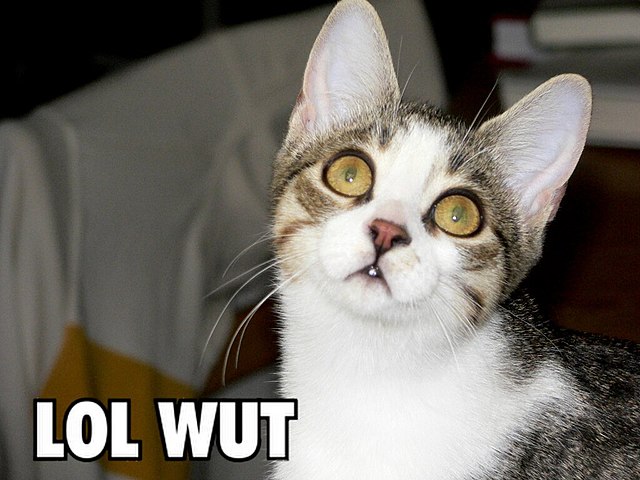LOL, or lol, is an initialism for laughing out loud and a popular element of Internet slang. It was first used almost exclusively on Usenet, but has since become widespread in other forms of computer-mediated communication and even face-to-face communication. It is one of many initialisms for expressing bodily reactions, in particular laughter, as text, including initialisms for more emphatic expressions of laughter such as LMAO and ROFL or ROTFL.
Use of "lol" in response to a joke, in a 2007 conversation on IRC
Richard Nixon laughing out loud in 1969 (prior to the invention of the initialism LOL)
A lolcat using "LOL"
Internet slang is a non-standard or unofficial form of language used by people on the Internet to communicate to one another. An example of Internet slang is "LOL" meaning "laugh out loud." Since Internet slang is constantly changing, it is difficult to provide a standardized definition. However, it can be understood to be any type of slang that Internet users have popularized, and in many cases, have coined. Such terms often originate with the purpose of saving keystrokes or to compensate for small character limits. Many people use the same abbreviations in texting, instant messaging, and social networking websites. Acronyms, keyboard symbols, and abbreviations are common types of Internet slang. New dialects of slang, such as leet or Lolspeak, develop as ingroup Internet memes rather than time savers. Many people also use Internet slang in face-to-face, real life communication.

In this picture, the graffiti represents some examples of the different types of slang. The symbols "X:)" ":)" and "XD" are an example of emoticons. LOL "laugh out loud" and ROFL "rolling on the floor laughing" are examples of letter homophones.




